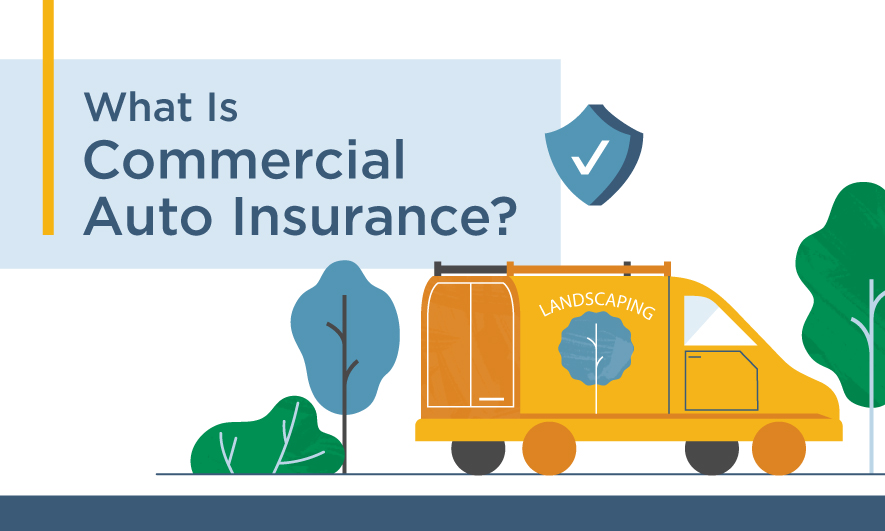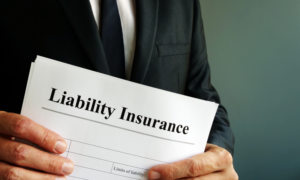In today’s fast-paced and competitive business environment, ensuring the protection of your company’s vehicles is more important than ever. Commercial vehicle insurance plays a critical role in safeguarding your business assets, ensuring your fleet remains operational, and providing financial security in the event of an unforeseen incident. In this article, we will delve into the various aspects of commercial vehicle insurance, why it’s essential for your business, and how you can choose the right policy to protect your investments.
What is Commercial Vehicle Insurance?
Commercial vehicle insurance, also known as fleet insurance, is a specialized policy designed to protect vehicles used for business purposes. This type of insurance covers a wide range of vehicles, including trucks, vans, delivery cars, and any other vehicles that are used to transport goods, services, or passengers for a business. Whether you’re a small business owner with one delivery van or manage a large fleet of commercial vehicles, commercial vehicle insurance ensures your vehicles are covered in case of accidents, damage, theft, or liability issues.
Why is Commercial Vehicle Insurance Important?
For businesses that rely on vehicles to transport goods or people, commercial vehicle insurance is essential for several reasons:
1. Protection Against Accidents and Damage
Commercial vehicles are regularly on the road, which exposes them to the risk of accidents. Whether it’s a collision with another vehicle, property damage, or an accident due to weather conditions, commercial vehicle insurance provides financial protection for the repair costs, medical expenses, and liability claims that may arise from these accidents.
2. Liability Coverage
One of the most important aspects of commercial vehicle insurance is liability coverage. If your business vehicle causes harm to another person or damages someone else’s property, your insurance will cover the legal and medical costs associated with these claims. Without liability coverage, your business could face devastating financial repercussions.
3. Theft and Vandalism Protection
Commercial vehicles often carry valuable goods or tools, making them prime targets for theft and vandalism. With commercial vehicle insurance, businesses can recover their losses and replace stolen or damaged vehicles and equipment, helping to minimize downtime and loss of business.
4. Compliance with Legal Requirements
In many regions, commercial vehicle insurance is not just a good idea—it’s a legal requirement. Failing to carry the necessary insurance can result in hefty fines, legal consequences, and potential loss of your business license. Ensuring that your business is properly insured keeps you compliant with local regulations.
5. Peace of Mind for Business Owners
Running a business comes with its fair share of risks, but having commercial vehicle insurance offers peace of mind. Knowing that your vehicles are covered for a wide range of incidents allows you to focus on growing your business rather than worrying about the unpredictable costs of accidents or damage.
Types of Commercial Vehicle Insurance
When it comes to commercial vehicle insurance, there are several types of coverage options available, each designed to meet the unique needs of your business:
1. Liability Coverage
This is the most basic form of insurance and is typically required by law. Liability coverage will help cover medical expenses and repair costs for the other party in an accident you are responsible for. There are two main types of liability coverage:
- Bodily Injury Liability: Covers medical costs, lost wages, and other expenses for people injured in an accident caused by your commercial vehicle.
- Property Damage Liability: Pays for the repairs to any property that your commercial vehicle damages.
2. Collision Coverage
Collision coverage helps pay for the repairs to your vehicle if it is involved in an accident, regardless of who is at fault. This type of coverage is vital if you want to protect your commercial vehicle from costly repairs in the event of an accident.
3. Comprehensive Coverage
Comprehensive coverage protects your vehicle from non-collision-related damage, such as theft, vandalism, or damage from natural disasters like floods or hailstorms. This policy is especially beneficial if your vehicles operate in areas prone to such risks.
4. Cargo Insurance
If your commercial vehicle transports goods or equipment, cargo insurance is essential. This type of coverage protects the value of the cargo you’re carrying, whether it’s delivered to a customer or in transit between locations.
5. Uninsured/Underinsured Motorist Coverage
While your commercial vehicle insurance covers you in accidents, it may not protect you if the other party is underinsured or doesn’t have insurance at all. Uninsured/underinsured motorist coverage fills this gap, ensuring your business is not left financially exposed in such scenarios.
How to Choose the Right Commercial Vehicle Insurance
Choosing the right commercial vehicle insurance policy can be overwhelming, but with the right approach, it’s possible to find the perfect coverage for your business needs. Here are some tips to help you make an informed decision:
1. Assess Your Business Needs
The first step is to evaluate the type of vehicles you use and how often they’re on the road. If you manage a large fleet, it’s essential to understand the specific risks associated with each vehicle and the cargo it carries. If you’re a small business with one or two vehicles, your needs may be different.
2. Understand the Coverage Options
Ensure you fully understand the types of coverage available and how they apply to your business. Depending on your risk exposure, you may need to combine multiple coverage options to create a policy that fits your requirements.
3. Compare Multiple Quotes
Different insurance providers may offer varying rates and coverage options. It’s important to obtain multiple quotes and compare the terms, coverage limits, and premiums to find the best deal.
4. Review the Insurer’s Reputation
The reputation of the insurance provider is vital. Ensure that the company has a strong history of customer service and claims handling. Read reviews and speak with other business owners to get recommendations.
5. Consider the Cost of Premiums
While it’s tempting to go for the cheapest option, the lowest premium may not always provide adequate coverage. Strike a balance between the premium cost and the level of protection you need to ensure your business is properly covered.
Conclusion
In conclusion, commercial vehicle insurance is a vital part of running a business that relies on transportation. It not only protects your vehicles and assets but also ensures you are compliant with the law and ready for any unexpected incidents. By carefully assessing your needs, understanding your coverage options, and choosing a reputable insurer, you can secure the best policy for your business and enjoy peace of mind while operating on the road.
For businesses of all sizes, having the right commercial vehicle insurance is a smart investment that can save you money, time, and stress in the long run. Whether you’re starting a new venture or looking to renew your policy, taking the time to understand your options and securing comprehensive coverage is one of the most important decisions you can make for the future of your business.



